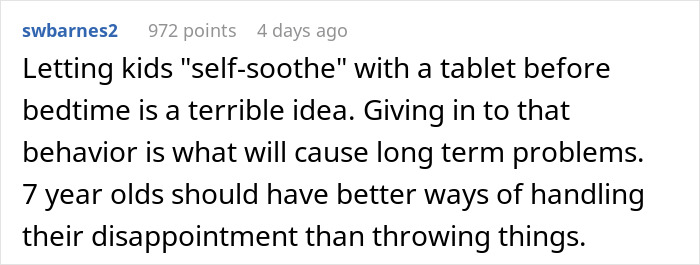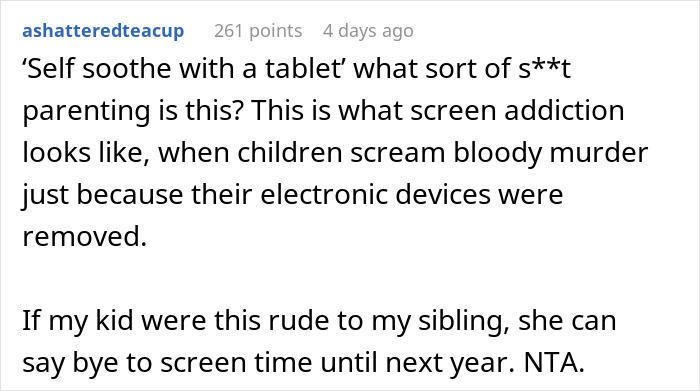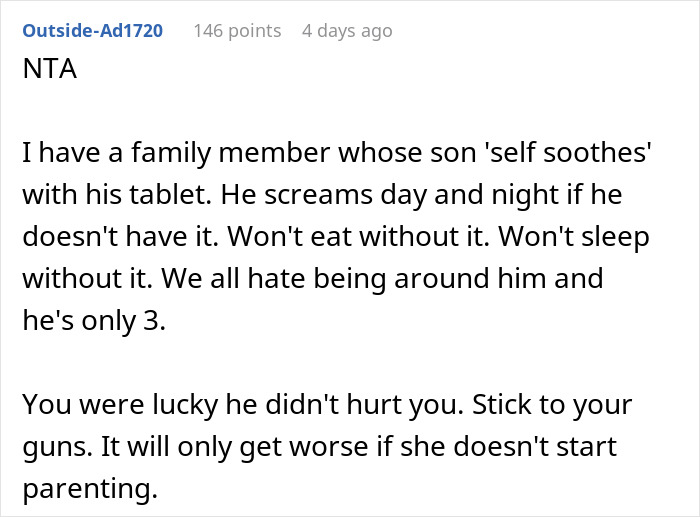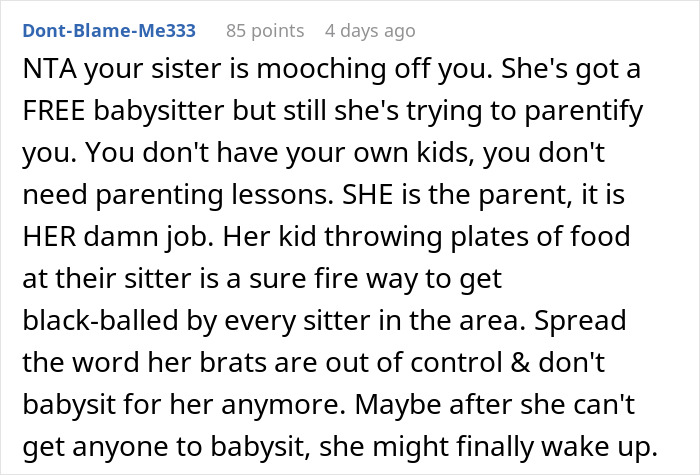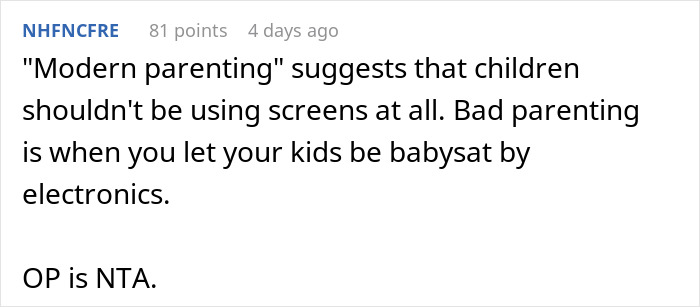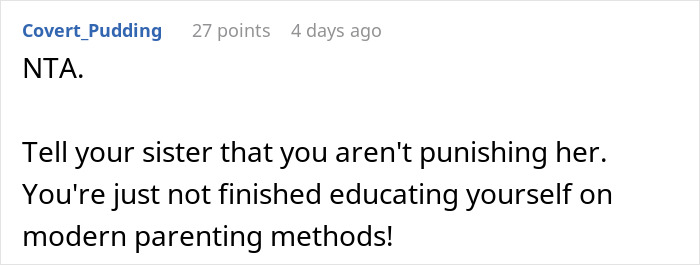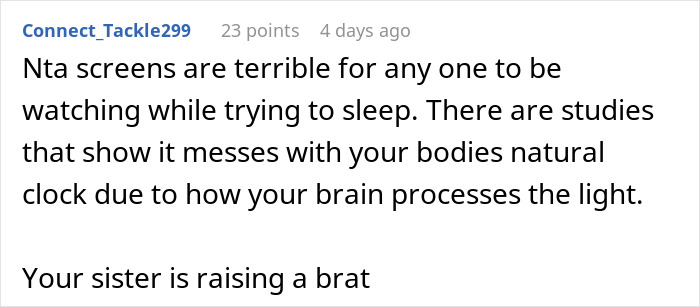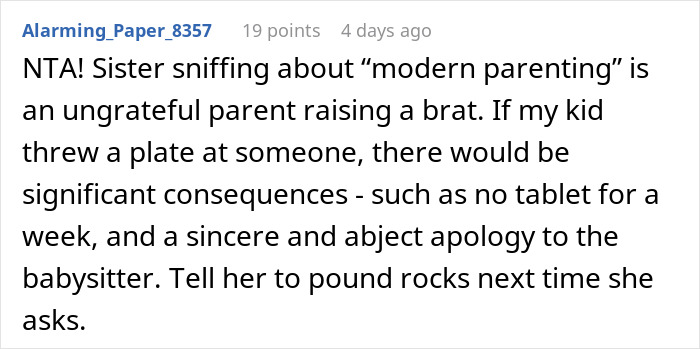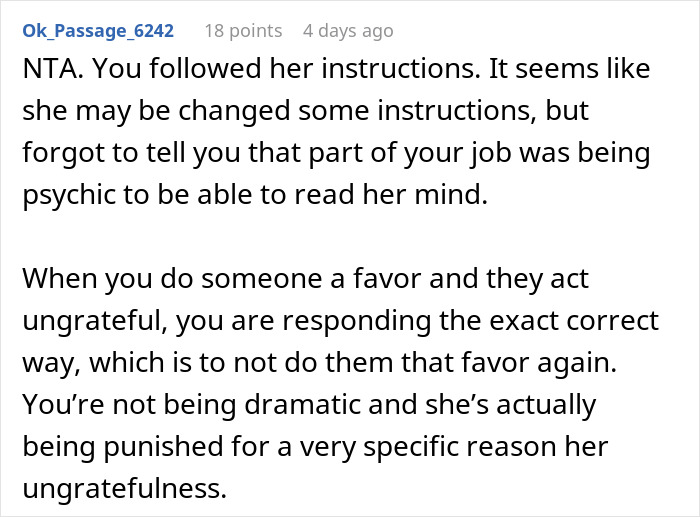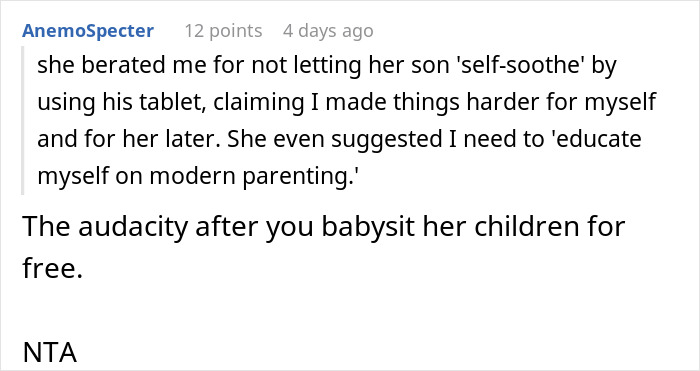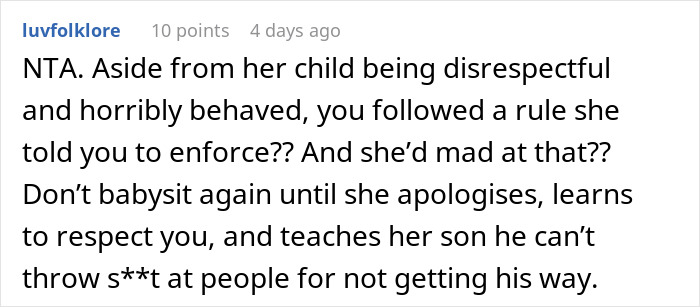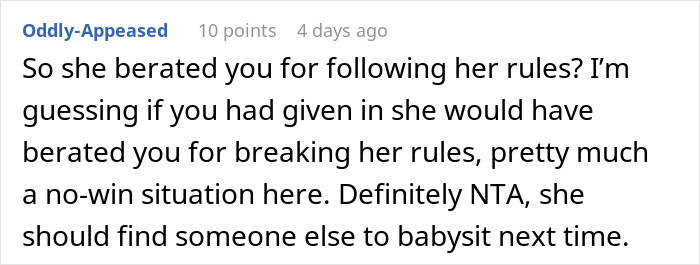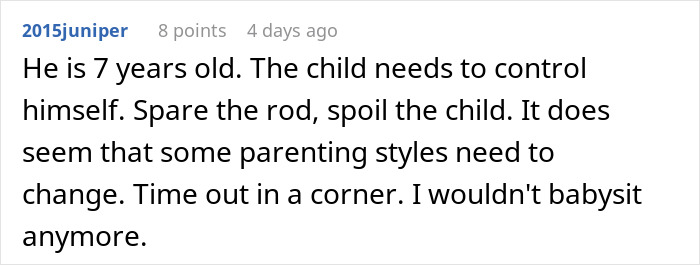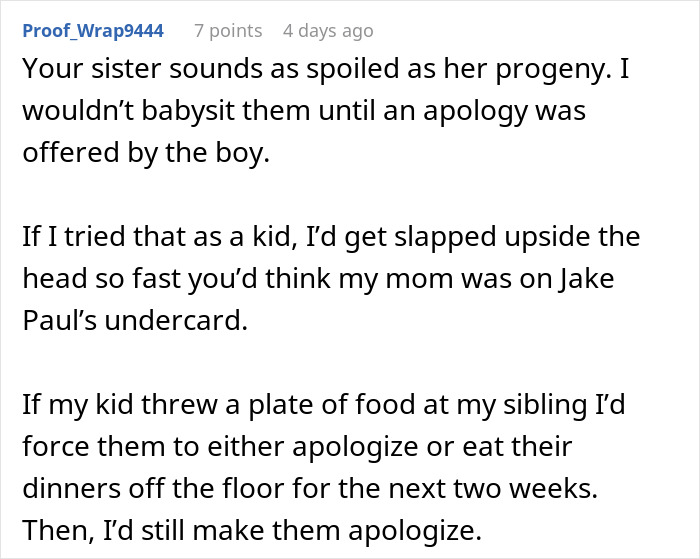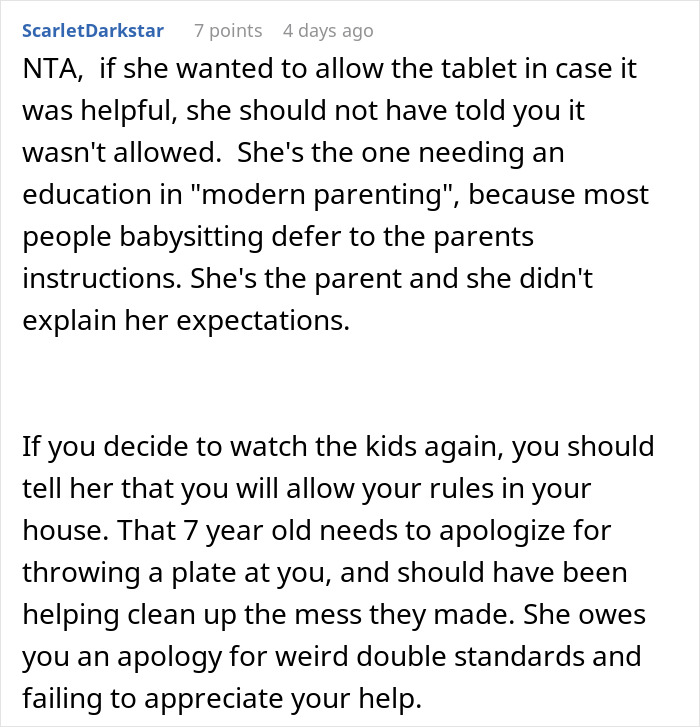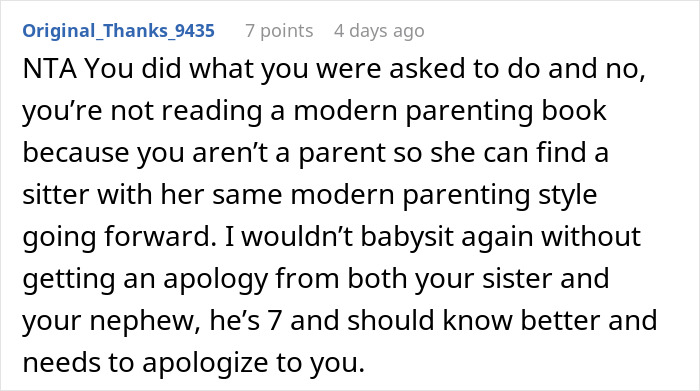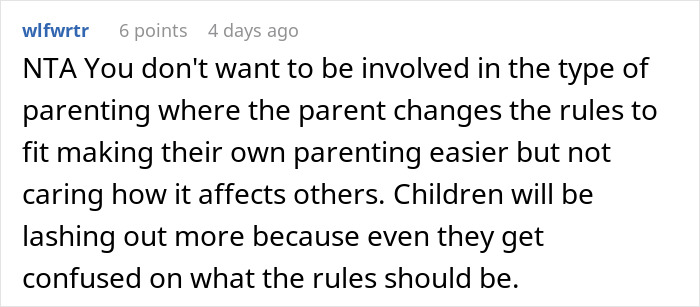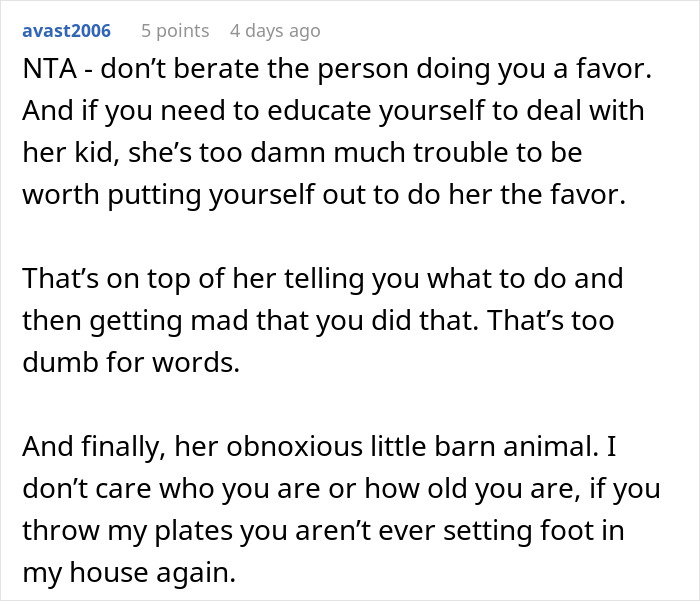If you’ve ever had to put a young child to bed, you might know the absolute hell that sometimes accompanies it. “I’m hungry,” “I need to pee,” “I’m thirsty,” “Why must I go to sleep?” Kids have the uncanny ability to come up with a thousand reasons under the sun why it’s not a great time to shut their eyes and drift into dreamland.
One woman went online to share how babysitting her niece and nephew turned into an absolute nightmare recently. She had everything under control until the dreaded bedtime arrived. Her nephew demanded his tablet, but the “cool aunt” stood her ground. The 7-year-old then threw a massive tantrum, hurling a dinner plate at her. But the part that really upset the woman was when the kid’s mom berated her for not letting him “self-soothe” with his device. The aunt is now wondering if she was in the wrong. Bored Panda reached out to clinical psychologist, author and educator Dr Martha Deiros Collado for her expert take on the matter.
It’s not uncommon for children to put up a fight when it gets to bedtime
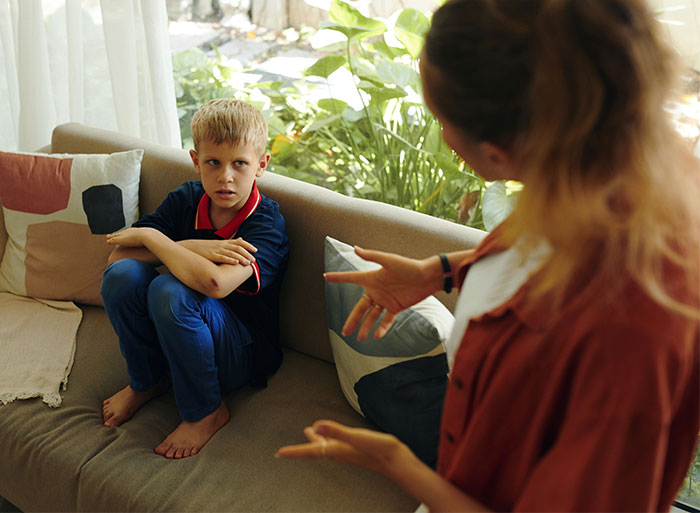
Image credits: DragonImages (not the actual photo)
But this woman was caught off guard when her nephew threw a dinner plate at her because she wouldn’t let him stay up and use his tablet
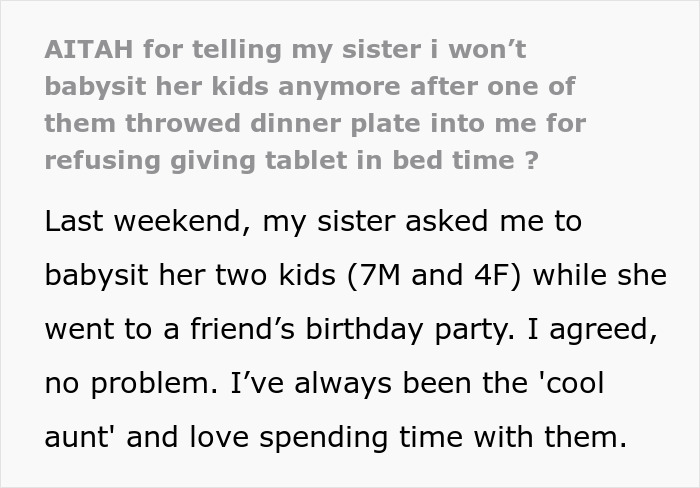
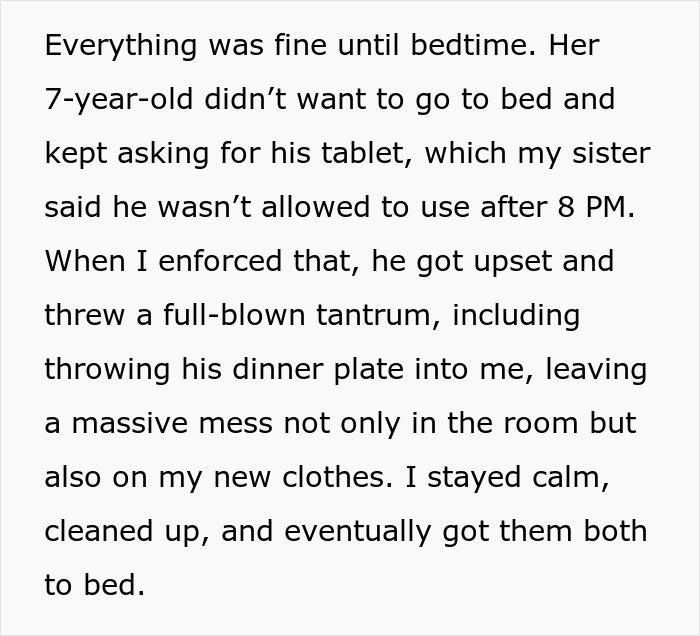
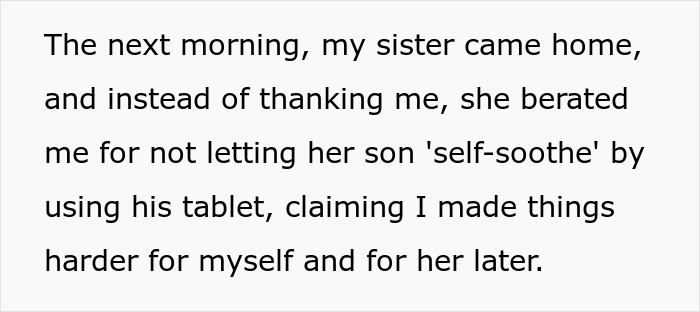
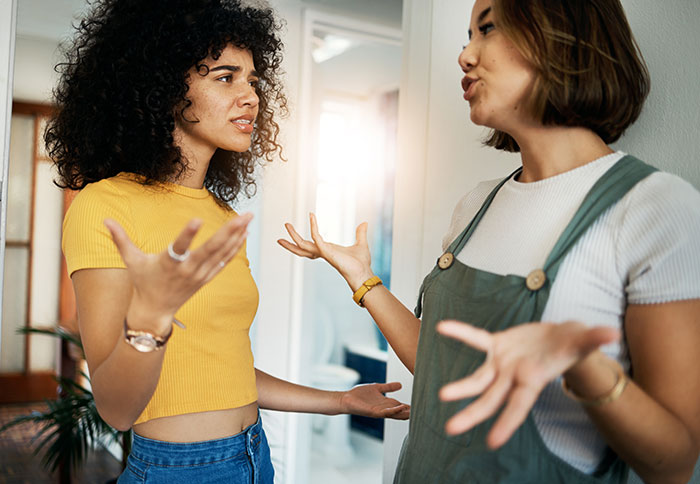
Image credits: YuriArcursPeopleimages (not the actual photo)
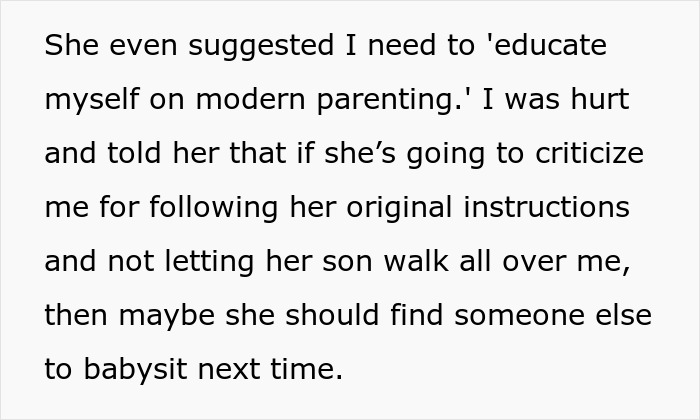
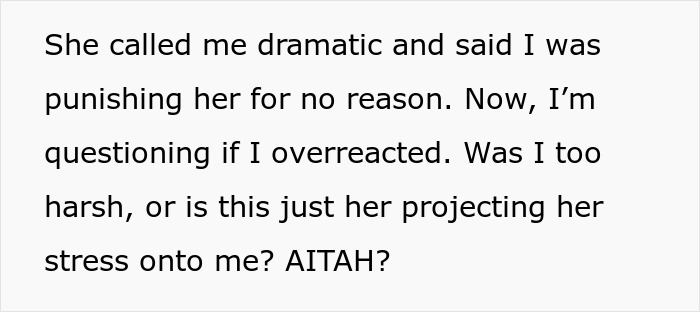
Image credits: vernvaquer
“The mother is being unfair… Auntie did her best”: a child psychologist’s opinion
Dr Martha Deiros Collado is a seasoned expert when it comes to the challenges of modern parenting. She’s a clinical psychologist with over 20 years of clinical and academic experience. Her book How to Be The Grown-Up: Why Good Parenting Starts with You was an instant Sunday Times Bestseller. And she’s created The Confident Parent Courses to help parents navigate modern parenting with their “sanity intact”.
Deiros Collado kindly took time out of her busy schedule to chat to Bored Panda about the aunt’s predicament. She believes the mother isn’t being fair towards her sister. And that the aunt followed the boundaries set by mom. “She gets berated for holding a boundary and her approach to caring for her niece and nephew seems to be ridiculed and belittled with the comment that she should ‘educate herself on modern parenting’,” said the expert, adding that it seems the mom had a hard time with her son on her return home, and projected this onto her sister’s caregiving capacity.
“As a parent, when you leave your child with another responsible loving adult you have to accept that they are not you, and therefore the way they respond to your child will not be the way you would necessarily do,” Deiros Collado told us. She says it’s reasonable and appropriate for parents to set some boundaries with a babysitter. For example, a bedtime routine that feels safe and familiar to the kids. And also to set reasonable limits like no tablet after 8pm. But beyond that, you cannot expect someone who babysits your children to ‘parent them’ in the way you would.
“This is often why children enjoy sleepovers with grandparents, aunties etc… because they know some of the boundaries will be more flexible and they will get some freedoms they don’t get usually with their parents,” said Deiros Collado. “This is absolutely normal, healthy, and appropriate when the adults caring for the children are safe loving adults trying their best. And it sounds like Auntie did her best, and was caring and loving towards her nephew and niece, even during challenging moments during the evening.”
Modern parenting doesn’t mean allowing kids to run amok
When Dr. Becca Ballinger’s husband of 14 years came out as gay, she was worried about how the announcement, and their consequent divorce, would affect her young kids. The clinical psychologist “dove into psychological research and used studies, evidence-based strategies, and statistics as [her] guide when making parenting decisions.”
More than ten years later, she says she has well-rounded and happy children. And too she has become an expert in the field. Ballinger is the founder of Modern Parenting Solutions and specializes in therapy for teens, tweens, young adults, and families. She believes some people miss the point of modern parenting.
“Some people jump to the conclusion that modern parenting is allowing their kids to live without rules, expectations, or values of any kind,” said Ballinger. “The stereotype of the kids setting the tone of the household and getting away with everything is often the knee-jerk image for some people.”
The expert instead defines modern parenting as “a parenting style that focuses on family-centered, research-informed, and connection-focused parenting solutions.” She adds that it’s all about “using the family’s unique passions, values, and beliefs to guide parenting decisions that lead to raising good kids and building a close bond with them at the same time.”
Research shows that 30% of children aren’t getting enough sleep because of excessive screen time
The American Academy of Sleep Medicine (AASM) recommends that children between the ages of 6 and 12 years old get 9 to 12 hours of sleep a night. The AASM warns that not getting sufficient sleep can lead to attention, behavior, and learning problems. It also “increases the risk of accidents, injuries, hypertension, obesity, diabetes, and depression.”
But this research paper cautions that almost a third of children are not getting the amount of sleep they need. It notes several studies have found that screen time is to blame. Children are either using valuable sleep time to play games or watch shows. Or they’re being psychologically stimulated. The light exposure and increased physiological alertness are causing them to struggle to fall asleep.
The paper further notes that three-quarters of American children and adolescents have at least one screen media device in their bedroom, “with roughly 60% reporting regular use of these devices during the hour before bedtime.” The AASM recommends that screen-based devices should be turned off 30 minutes before bedtime and should not be allowed in children’s bedrooms at all. The American Academy of Pediatrics has endorsed the recommendation.
Ballinger believes devices should be turned off even earlier. “There is no easier way to improve your child’s mood, behavior, and attention than enforcing a break from electronics the hour before bed.” The expert adds that routines are also key to getting a good night’s rest. “Routines help young people (and their bodies) predict – and prepare for – what’s coming next,” she explained. “We want your child’s body to learn to ‘power down’… so they can fall asleep quickly and stay asleep for most of the night.”
She says some parents are turning to melatonin or over-the-counter medicine instead of using the most obvious technique to ensure their kids get enough rest. “The easiest way to help your child or teen to fall asleep is to take a break from electronics the hour before sleep.”
“There are no studies I am aware of looking at the use of tablets/screens to help a child fall asleep,” said Deiros Collado during our interview. “But there are some studies suggesting that it is best for children and adults to spend the last 30min-1hr or so, before going to bed, doing things that don’t involve screens.” The expert says this allows “our brains to switch off, and get a good dose of the natural sleepy hormone ‘melatonin’ that will help us drift off to sleep.”
“Your sister is raising a brat”: many came to the woman’s defense and agreed that the mom should do better

